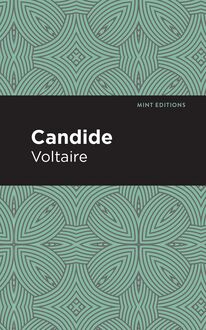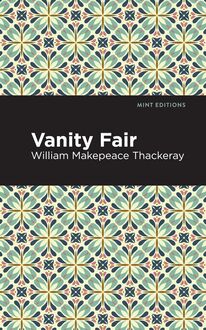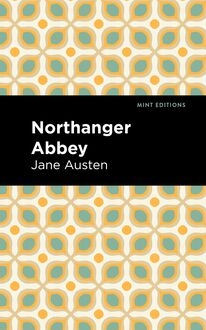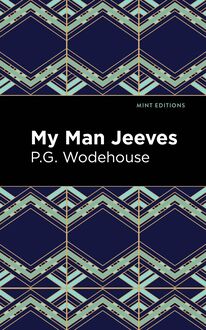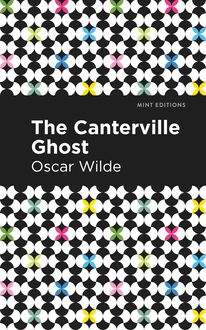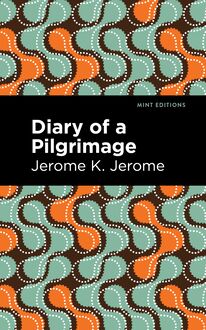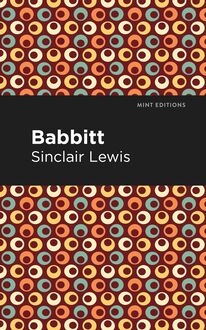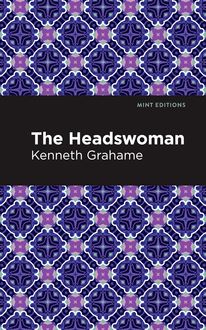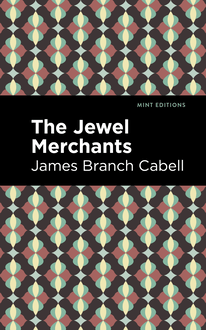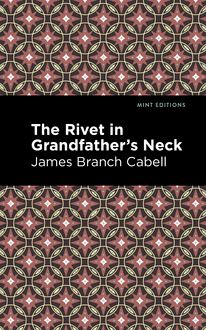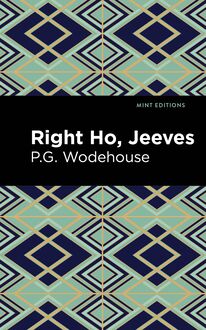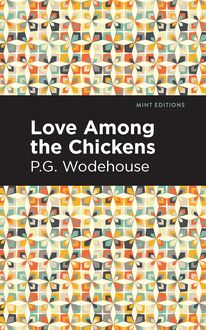-
 Univers
Univers
-
 Ebooks
Ebooks
-
 Livres audio
Livres audio
-
 Presse
Presse
-
 Podcasts
Podcasts
-
 BD
BD
-
 Documents
Documents
-
- Cours
- Révisions
- Ressources pédagogiques
- Sciences de l’éducation
- Manuels scolaires
- Langues
- Travaux de classe
- Annales de BEP
- Etudes supérieures
- Maternelle et primaire
- Fiches de lecture
- Orientation scolaire
- Méthodologie
- Corrigés de devoir
- Annales d’examens et concours
- Annales du bac
- Annales du brevet
- Rapports de stage
La lecture à portée de main
Vous pourrez modifier la taille du texte de cet ouvrage
Découvre YouScribe en t'inscrivant gratuitement
Je m'inscrisDécouvre YouScribe en t'inscrivant gratuitement
Je m'inscrisEn savoir plus
Vous pourrez modifier la taille du texte de cet ouvrage
En savoir plus

Description
A Man in the Zoo (1924) is a novel by David Garnett. Published several years after Garnett was awarded the James Tait Black Memorial Prize and the Hawthornden Prize for Lady into Fox (1922), his third novel explores themes of race and empire while showcasing the author’s original—and often controversial—literary style. “It was a warm day at the end of February, and Sunday morning. In the air there was a smell of spring, mixed with the odours of different animals—yaks, wolves, and musk-oxen, but the two visitors did not notice it. They were lovers, and were having a quarrel.” On a beautiful day at the local zoo, John Cromartie and Josephine Lackett find themselves falling out of love. Among the animals, Josephine explains that she can no longer explain their relationship to her family, who expect her to marry a man of equal social stature. Insulting John, she tells him he should live in the zoo before storming off. Heartbroken, and perhaps a little vindictive, John resolves to remain at the zoo with the animals she thinks he belongs with. With a beautifully designed cover and professionally typeset manuscript, this edition of David Garnett’s A Man in the Zoo is a classic work of British literature reimagined for modern readers.
Sujets
Informations
| Publié par | Mint Editions |
| Date de parution | 28 septembre 2021 |
| Nombre de lectures | 0 |
| EAN13 | 9781513294216 |
| Langue | English |
| Poids de l'ouvrage | 2 Mo |
Informations légales : prix de location à la page 0,0300€. Cette information est donnée uniquement à titre indicatif conformément à la législation en vigueur.
Extrait
A Man in the Zoo
David Garnett
A Man in the Zoo was first published in 1924.
This edition published by Mint Editions 2021.
ISBN 9781513291369 | E-ISBN 9781513294216
Published by Mint Editions®
minteditionbooks.com
Publishing Director: Jennifer Newens
Design & Production: Rachel Lopez Metzger
Project Manager: Micaela Clark
Typesetting: Westchester Publishing Services
To
Henrietta Bingham
and
Mina Kirstein
C ONTENTS Begin Reading
A UTHOR’S N OTE
I have to thank Mr. Arthur Waley for permission to quote from his translation of a poem by Wang Yen-shou, which appears in “The Temple and other Poems,” published by Messrs. Allen & Unwin.
I also wish to say that the Royal Zoological Society has always been the object of my respect and admiration, and that in this story, neither explicitly or implicitly, is anything intended that could be regarded as derogatory to the Society in any sense.
John Cromartie and Josephine Lackett gave up their green tickets at the turnstile, and entered the Zoological Society’s Gardens by the South Gate.
It was a warm day at the end of February, and Sunday morning. In the air there was a smell of spring, mixed with the odours of different animals—yaks, wolves, and musk-oxen, but the two visitors did not notice it. They were lovers, and were having a quarrel.
They came soon to the Wolves and Foxes, and stood still opposite a cage containing an animal very like a dog.
“Other people, other people! You are always considering the feelings of other people,” said Mr. Cromartie. His companion did not answer him so he went on:
“You say somebody feels this, or that somebody else may feel the other. You never talk to me about anything except what other people are feeling, or may be going to feel. I wish you could forget about other people and talk about yourself, but I suppose you have to talk of other people’s feelings because you haven’t any of your own.”
The beast opposite them was bored. He looked at them for a moment and forgot them at once. He lived in a small space, and had forgotten the outside world where creatures very like himself raced in circles.
“If that is the reason,” said Cromartie, “I do not see why you should not say so. It would be honest if you were to tell me you felt nothing for me. It is not honest to say first that you love me, and then that you are a Christian and love everybody equally.”
“Nonsense,” said the girl, “you know that is nonsense. It is not Christianity, it is because I love several people very much.”
“You do not love several people very much,” said Cromartie, interrupting her. “You cannot possibly love people like your aunts. Nobody could. No, you do not really love anybody. You imagine that you do because you have not got the courage to stand alone.”
“I know whom I love, and whom I do not,” said Josephine. “And if you should drive me to choose between you and everybody else, I should be a fool to give myself to you.”
Dingo ♂
Canis familiaris var.
N EW S OUTH W ALES , A USTRALIA
“Poor little Dingo,” said Cromartie. “They do shut up creatures here on the thinnest pretexts. He is only the familiar dog.”
The Dingo whined, and wagged his tail. He knew that he was being spoken of.
Josephine turned from her lover to the Dingo, and her face softened as she looked at it.
“I suppose they have got to have everything here, every single kind of beast there is, even if it turns out to be nothing but an ordinary dog.”
They left the Dingo, walked to the next cage, and stood side by side looking at the creature in it.
“The slender dog,” said Josephine, reading the label. She laughed, and the slender dog got up and walked away.
“So that is a wolf,” said Cromartie, as they stopped six feet further on. “Another dog in a cage… Give yourself to me, Josephine, that sounds to me as if you were crazy. But it shows anyway that you are not in love with me. If you are in love it is all or nothing. You cannot be in love with several people at once. I know because I am in love with you, and other people are all my enemies, necessarily my enemies.”
“What nonsense!” said Josephine.
“If I am in love with you,” Cromartie went on, “and you with me, it means that you are the only person who is not my enemy, and I am the only person who is not yours. A fool to give yourself to me! Yes, you are a fool if you fancy you are in love when you are not, and I should be a fool to believe it. You do not give yourself to the person with whom you are in love, you are yourself instead of being dressed up in armoured plate.”
“Has this place got nothing in it besides tame dogs?” asked Josephine.
They walked together towards the lion house, and Josephine took John’s arm in hers. “Armoured plate. It doesn’t seem to me to make sense. I cannot bear to hurt the people I love, and so I am not going to live with you, or do anything that they would mind if they found out.”
John said nothing to this, only shrugged his shoulders, screwed up his eyes, and rubbed his nose. In the lion house they walked slowly from cage to cage until they came to a tiger which walked up and down, up and down, up and down, turning his great painted head with intolerable familiarity, and with his whiskers just brushing the brick wall.
“They pay for their beauty, poor beasts,” said John, after a pause. “And you know it proves what I’ve been saying. Mankind want to catch anything beautiful and shut it up, and then come in thousands to watch it die by inches. That’s why one hides what one is and lives behind a mask in secret.”
“I hate you, John, and all your ideas. I love my fellow creatures—or most of them—and I can’t help it if you are a tiger and not a human being. I’m not mad; I can trust people with every feeling I have got, and I shall never have any feelings that I shouldn’t like to share with everybody. I don’t mind if I am a Christian—it’s better than suffering from persecution mania, and browbeating me because I’m fond of my father and Aunt Eiley.”
But Miss Lackett did not look very browbeaten as she said this. On the contrary her eyes sparkled, her colour was high and her looks imperious, and she kept tapping the toe of her pointed shoe on the stone floor. Mr. Cromartie was irritated by this tapping, so he said something in a low voice on purpose so that Josephine should not be able to hear it; the only word audible was “browbeating.”
She asked him very savagely what he had said. John laughed. “What’s the use of my talking to you at all if you fly into a rage before you have even heard what I have got to say?” he asked her.
Josephine turned pale with self-control; she glared at a placid lion with such fury that, after a moment or two, the beast got up and walked into the den behind his cage.
“Josephine, please be reasonable. Either you are in love with me or else you are not. If you are in love with me it can’t cost you much to sacrifice other people to me. Since you won’t do that it follows that you are not in love with me, and in that case you only keep me hanging round you because it pleases your vanity. I wish you would choose someone else for that sort of thing. I don’t like it, and any of your father’s old friends would do better than me.”
“How dare you talk to me about my father’s old friends?” said Josephine. They were silent. Presently Cromartie said, “For the last time, Josephine, will you marry me, and be damned to your relations?”
“No! You silly savage!” said Josephine. “No, you wild beast. Can’t you understand that one doesn’t treat people like that? It is simply wasting my breath to talk. I’ve explained a hundred times I am not going to make father miserable. I am not going to be cut off with a shilling and become dependent on you when you haven’t enough money to live on yourself, to satisfy your vanity. My vanity, do you think having you in love with me pleases my vanity? I might as well have a baboon or a bear. You are Tarzan of the Apes; you ought to be shut up in the Zoo. The collection here is incomplete without you. You are a survival—atavism at its worst. Don’t ask me why I fell in love with you—I did, but I cannot marry Tarzan of the Apes, I’m not romantic enough. I see, too, that you do believe what you have been saying. You do think mankind is your enemy. I can assure you that if mankind thinks of you, it thinks you are the missing link. You ought to be shut up and exhibited here in the Zoo—I’ve told you once and now I tell you again—with the gorilla on one side and the chimpanzee on the other. Science would gain a lot.”
“Well, I will be. I am sure you are quite right. I’ll make arrangements to be exhibited,” said Cromartie. “I’m very grateful to you for having told me the truth about myself.” Then he took off his hat and said “Goodbye,” and giving a quick little nod he walked away.
“Miserable baboon,” muttered Josephine, and she hurried out through the swing doors.
They were both of them in a rage, but John Cromartie was in such a desperate rage that he did not know he was angry, he only thought that he was very miserable and unhappy, Josephine, on the other hand, was elated. She would have enjoyed slashing at Cromartie with a whip.
That evening Cromartie could not keep still. When the chairs presumed to stand in his path he knocked them over, but he soon found that merely upsetting furniture was not enough to restore his peace of mind. It was then that Mr. Cromartie made a singular determination—one which you may swear no other man in like circumstances would ever have arrived at.
It was somehow or other to get himself exhibited in the Zoo, as if he were part of the menagerie.
It may be that a strange predilection which he had for keeping his word is enough to account for this. But it will always be found that many impulses are entirely whimsical and not to be accounted for by reason. And this man was both proud and obstinate, so that when he had decided upon a thing in passion
-
 Univers
Univers
-
 Ebooks
Ebooks
-
 Livres audio
Livres audio
-
 Presse
Presse
-
 Podcasts
Podcasts
-
 BD
BD
-
 Documents
Documents
-
Jeunesse
-
Littérature
-
Ressources professionnelles
-
Santé et bien-être
-
Savoirs
-
Education
-
Loisirs et hobbies
-
Art, musique et cinéma
-
Actualité et débat de société
-
Jeunesse
-
Littérature
-
Ressources professionnelles
-
Santé et bien-être
-
Savoirs
-
Education
-
Loisirs et hobbies
-
Art, musique et cinéma
-
Actualité et débat de société
-
Actualités
-
Lifestyle
-
Presse jeunesse
-
Presse professionnelle
-
Pratique
-
Presse sportive
-
Presse internationale
-
Culture & Médias
-
Action et Aventures
-
Science-fiction et Fantasy
-
Société
-
Jeunesse
-
Littérature
-
Ressources professionnelles
-
Santé et bien-être
-
Savoirs
-
Education
-
Loisirs et hobbies
-
Art, musique et cinéma
-
Actualité et débat de société
- Cours
- Révisions
- Ressources pédagogiques
- Sciences de l’éducation
- Manuels scolaires
- Langues
- Travaux de classe
- Annales de BEP
- Etudes supérieures
- Maternelle et primaire
- Fiches de lecture
- Orientation scolaire
- Méthodologie
- Corrigés de devoir
- Annales d’examens et concours
- Annales du bac
- Annales du brevet
- Rapports de stage
